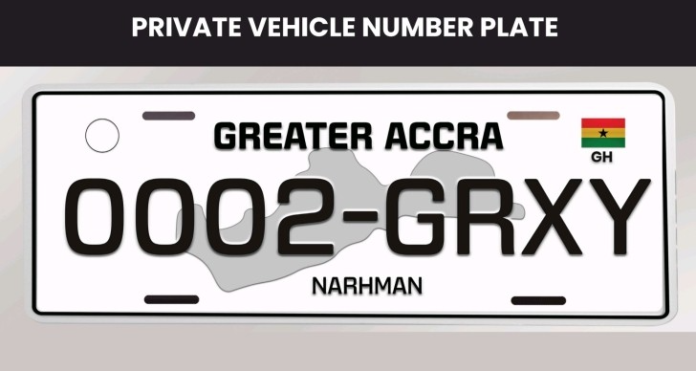Ghana to Mandate RFID-Enabled Plates for All Vehicles Starting April 1, 2026
Ghana will overhaul its vehicle registration system by requiring all vehicles to transition to RFID-enabled number plates beginning April 1, 2026. The Driver and Vehicle Licensing Authority announced the phased rollout, which represents one of the most significant modernizations of Ghana’s transport infrastructure in decades, aiming to combat smuggling, streamline toll collection, and enhance law enforcement capabilities.
The initiative, led by DVLA Chief Executive Julius Neequaye Kotey, will replace the current year-of-registration system with a design featuring a regional code, unique four-digit vehicle number, and zonal identifier. New registrations will begin receiving the plates from January 1, 2026, followed by mandatory re-registration of all existing vehicles between April 1, 2026 and December 1, 2027.
The new plates incorporate Radio Frequency Identification chips that enable real-time digital tracking and identification. Beyond vehicle detection, the RFID technology will facilitate automatic toll collection, speed camera integration, and immediate access to vehicle information by law enforcement through a centralized database.
Kotey described the reform as critical national infrastructure with dual benefits for security and revenue protection. He disclosed that Ghana currently loses significant resources through vehicle smuggling across approximately 25 illegal border routes. The RFID system will prevent registration of smuggled vehicles by flagging them against the central database, making it impossible to process undeclared imports without detection.
Law enforcement agencies will gain unprecedented tracking capabilities through the system. A stolen vehicle can be immediately flagged within the national registry, with RFID readers positioned at checkpoints to provide instant notifications to police. This technological integration significantly enhances security agencies’ ability to respond to vehicle-related crimes and traffic violations.
The new plate design incorporates regional backgrounds representing each registration zone. A reflective surface improves visibility in low-light conditions, while digital integration reduces fraud and human error inherent in manual registration processes. The format replaces the traditional structure that showed the year of vehicle registration, which previously influenced resale values and discouraged timely re-registration.
Defective Vehicle (DV) and Temporary (TMP) plates will be redesigned simultaneously. A sticker-based system will be introduced for vehicles not yet roadworthy, with enforcement mechanisms strengthened to prevent unauthorized use of dealer plates. Enhanced compliance measures aim to curb the misuse of temporary registration systems.
The DVLA emphasized that vehicle owners will not require full re-registration but only need to pay fees for new plates. The transition period extending to December 2027 allows adequate time for the entire national fleet to complete the changeover without disrupting commercial operations or imposing unreasonable burdens on motorists.
DVLA officials clarified that the plate design remains subject to refinement before the January 2026 launch, with modifications still possible to ensure alignment with national and international standards. Recent circulation of fraudulent plate designs online prompted the authority to caution the public against misinformation and confirm that official announcements will come through verified channels.
The broader digitalization agenda reflects Ghana’s commitment to modernizing transport infrastructure and improving revenue collection. The system promises seamless toll collection through automated payments, reduced manual enforcement costs, and enhanced vehicle tracking for border security. These technological improvements position Ghana among regional leaders in transport management innovation.
Public awareness campaigns and stakeholder engagement sessions are planned to prepare vehicle owners for the transition. The DVLA seeks cooperation from automobile associations, commercial transport operators, and the general public to ensure smooth implementation of the national system overhaul.
Source link







Leave a Reply
Want to join the discussion?Feel free to contribute!